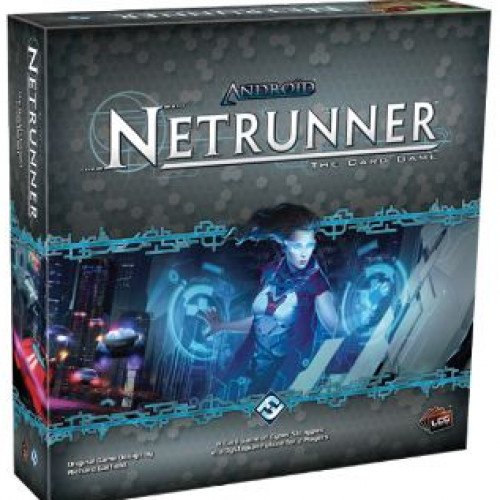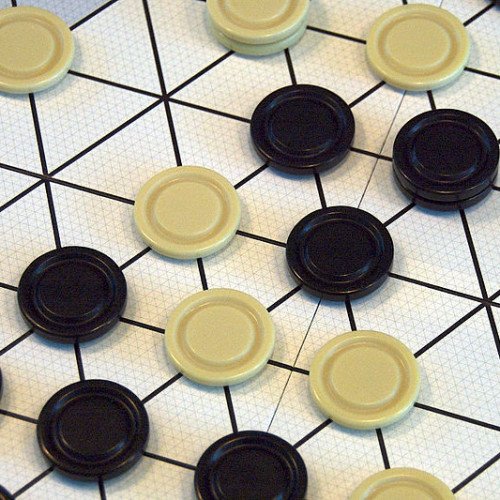ANDROID: NETRUNNER VS GIPF

ANDROID: NETRUNNER
Android: Netrunner is a Living Card Game (LCG) produced by Fantasy Flight Games. It is a two-player game set in the dystopian future of the Android universe. Each game is played as a battle between a megacorporation and a hacker ("runner") in a duel to take control of data. It is based on Richard Garfield's Netrunner collectible card game, produced by Wizards of the Coast in 1996. In 2017, a second edition of the core set was announced which replaced some of the original cards with cards from the first two expansion cycles. In 2018, the game was discontinued due to the license with Wizards of the Coast ending. Fantasy Flight stated that Netrunner products will no longer be sold by them as of October 22, 2018, and Reign and Reverie was the last expansion. Like the original, the game is asymmetric and involves two players, one playing a hacker ("the Runner") and the other playing a corporation ("the Corp"). The Runner wins by stealing seven or more points worth of agenda cards or if the Corp can't draw a card when required (due to an empty deck). The Corp wins by scoring agenda cards worth a total of seven or more points or if the Runner is forced to discard more cards than they have in their hand.
Statistics for this Xoptio

GIPF
GIPF is an abstract strategy board game by Kris Burm, the first of six games in his series of games called the GIPF Project. GIPF was recommended by Spiel des Jahres in 1998. Players take turns pushing tokens (one player taking black, the other white) from the edge of the tri-gridded, hexagonal board, with pieces already in play pushed in front of the new placements rather than allowing more than one piece on any space. The game is lost if a player has no more tokens to play, and since each starts with a set number of tokens, it is clearly necessary to recycle pieces already positioned to keep playing. This is achieved by contriving to line up four pieces of the same colour in a row on the board, at which point those tokens are returned to their owner, and any opposing tokens extending from the line of four are captured. Because a single player will often move several pieces and change numerous on-board relationships, it is remarkably difficult to predict the state of the board more than one turn ahead, despite GIPF being a game of perfect information. Play tends to be highly fluid and there is no real concept of long term territorial or spatial development. The game can be expanded with extra pieces (available separately) called Potentials, which allow different kinds of moves to be made. These are named for the other games in the GIPF Project, though the other games are not actually necessary in order to utilise the Potentials named after them.